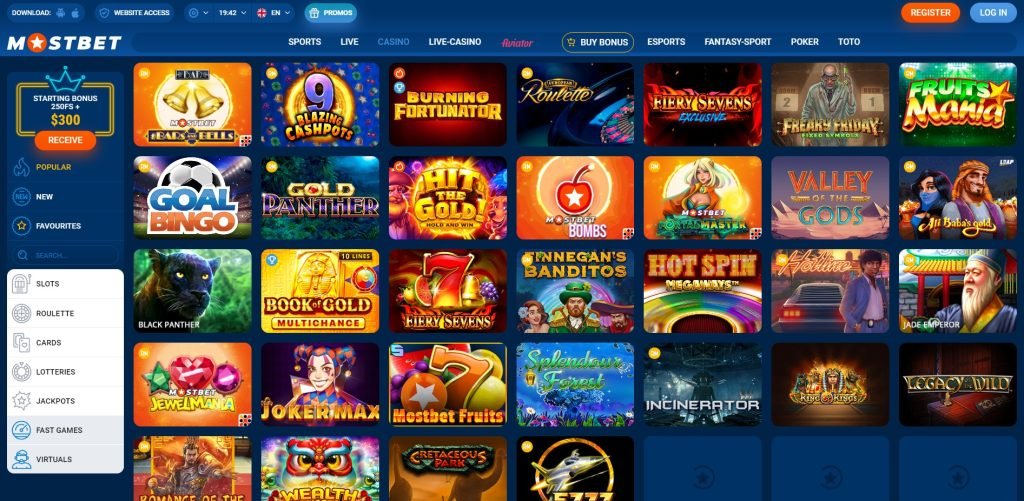The Evolution of Online Casinos
The Evolution of Online Casinos

The Evolution of Online Casinos:
The journey of The Evolution of Online Casinos: From 2020 to 2025 Мостбет КЗ begins in the mid-1990s, marking a significant turning point in the gambling world. Initially, the concept of gambling via the internet seemed like a distant dream, but as technology advanced, it soon became a reality. The introduction of the first online casinos changed the landscape of gambling, offering players the convenience of playing from home, a vast range of games, and enticing bonuses that brick-and-mortar casinos struggled to match. This article will delve into the evolution of online casinos, examining the technological breakthroughs, the impact of regulations, and the future trends that continue to shape this dynamic industry.
The Inception of Online Gambling
In 1994, Antigua and Barbuda passed the Free Trade & Processing Act, enabling the licensing of online gambling operations. This legislative change sparked the beginning of online casinos. The first-ever online casino, Gaming Club, launched in the same year, paving the way for what would become a multi-billion dollar industry. Initially, these platforms offered a limited selection of games, primarily focused on classic casino staples such as blackjack and roulette. The most primitive games relied on basic software, often providing a less than stellar user experience.
Technological Advancements

As the internet evolved through the late 1990s and early 2000s, so did the online casino experience. The introduction of better graphics, faster internet speeds, and enhanced software made online gambling more appealing. Casinos began to incorporate sophisticated gaming software, providing players with realistic graphics, improved sound effects, and engaging user interfaces. The rise of Flash and later HTML5 technology allowed for more interactive and visually stunning games. Additionally, the advent of mobile technology transformed online casinos yet again, allowing players to gamble on the go. By 2010, mobile gaming had started to take off, with many online casinos optimizing their websites for mobile devices, and developing dedicated apps for iOS and Android.
The Boom of Online Gambling
During the early 2000s, the online gambling industry experienced an unprecedented boom. With the growing popularity of the internet and advancements in technology, more players were drawn to the allure of online casinos. The introduction of live dealer games was a game-changer, providing players with an immersive experience that mimicked the atmosphere of a physical casino. These games utilized live video feeds, allowing players to interact with real dealers and other players in real-time, further bridging the gap between online and land-based gambling.
Regulatory Challenges
The rapid growth of online casinos raised various regulatory concerns. Different countries adopted varying legal approaches to online gambling, leading to a complex web of regulations. In the United States, the Unlawful Internet Gambling Enforcement Act (UIGEA) of 2006 significantly impacted the industry, prohibiting financial institutions from processing transactions related to online gambling. This led to a temporary decline in U.S. players participating in online casinos. However, the landscape began to change again in the late 2010s, as several states moved to legalize and regulate online gambling, recognizing the potential for tax revenue and increased consumer protection.

The Integration of Blockchain Technology
In recent years, blockchain technology has started to make waves in the online gambling industry. The transparent nature of blockchain allows for comprehensive tracking of transactions, improving trust and security for players. Cryptocurrencies, such as Bitcoin, have begun to be accepted by various online casinos, offering players an anonymous and secure method of payment. The introduction of decentralized casinos has also emerged, which operate on blockchain technology and eliminate the need for intermediaries. This shift towards transparency and enhanced security reflects a growing trend in consumer demand for trustworthiness in online gambling.
Virtual Reality and the Future of Online Casinos
As technology continues to evolve, virtual reality (VR) is poised to take online gambling to the next level. By creating immersive environments, VR technology can simulate real-life casino experiences, allowing players to walk around virtual casinos, interact with other players, and participate in games just as they would in a physical setting. This technology is still in its infancy; however, several online casinos are already exploring its potential. The future of online gambling will likely see a hybrid model, combining elements of traditional casinos with innovative technology to provide players with unprecedented experiences.
Conclusion
The evolution of online casinos has been marked by significant technological advances and regulatory changes. From humble beginnings in the mid-1990s to the burgeoning, tech-driven industry we see today, online casinos have transformed the way we gamble. As we look to the future, the integration of blockchain, mobile technology, and virtual reality will continue to reshape the landscape. Players can expect even more engaging, transparent, and secure gambling experiences as the industry keeps pace with technological advancements. This evolution promises exciting prospects for the online casino industry, ensuring it remains an attractive option for both new and seasoned players.


